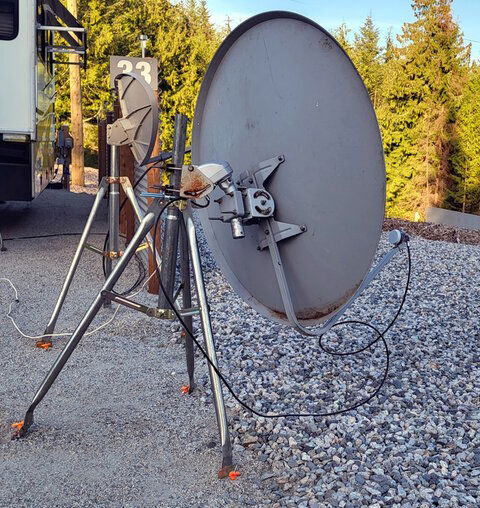I'm finally back in the motor game. My Stab90 died a few months ago and I got my hands on a Moteck SG2100. I already have a second SG2100, but it has the bigger tube size and I could never use it. (now I have a spare motor!)
I can say without a doubt that the SG2100 beats the pants off the Stab90. The Stab90 has a terrible problem with going direct to a satellite using a vertical transponder. It will not lock on and travelled back to 0 then back again. Sometimes it never stops. It was so frustrating and a massive flaw in the design. I'm sure it has to do with the voltage being supplied to the motor. Well, no such issue with the Moteck SG2100. It is rock solid and works perfectly. I love this thing.
For the first time I get everything from 65W to 129W (I am east limited by my house). I have never been on the arc like this and it feels good to have everything dialed in. I even get a great signal on my white whale (DW 103W).
I couldn't be happier and i'm looking forward to making a lot of contributions to the community.
I can say without a doubt that the SG2100 beats the pants off the Stab90. The Stab90 has a terrible problem with going direct to a satellite using a vertical transponder. It will not lock on and travelled back to 0 then back again. Sometimes it never stops. It was so frustrating and a massive flaw in the design. I'm sure it has to do with the voltage being supplied to the motor. Well, no such issue with the Moteck SG2100. It is rock solid and works perfectly. I love this thing.
For the first time I get everything from 65W to 129W (I am east limited by my house). I have never been on the arc like this and it feels good to have everything dialed in. I even get a great signal on my white whale (DW 103W).
I couldn't be happier and i'm looking forward to making a lot of contributions to the community.




